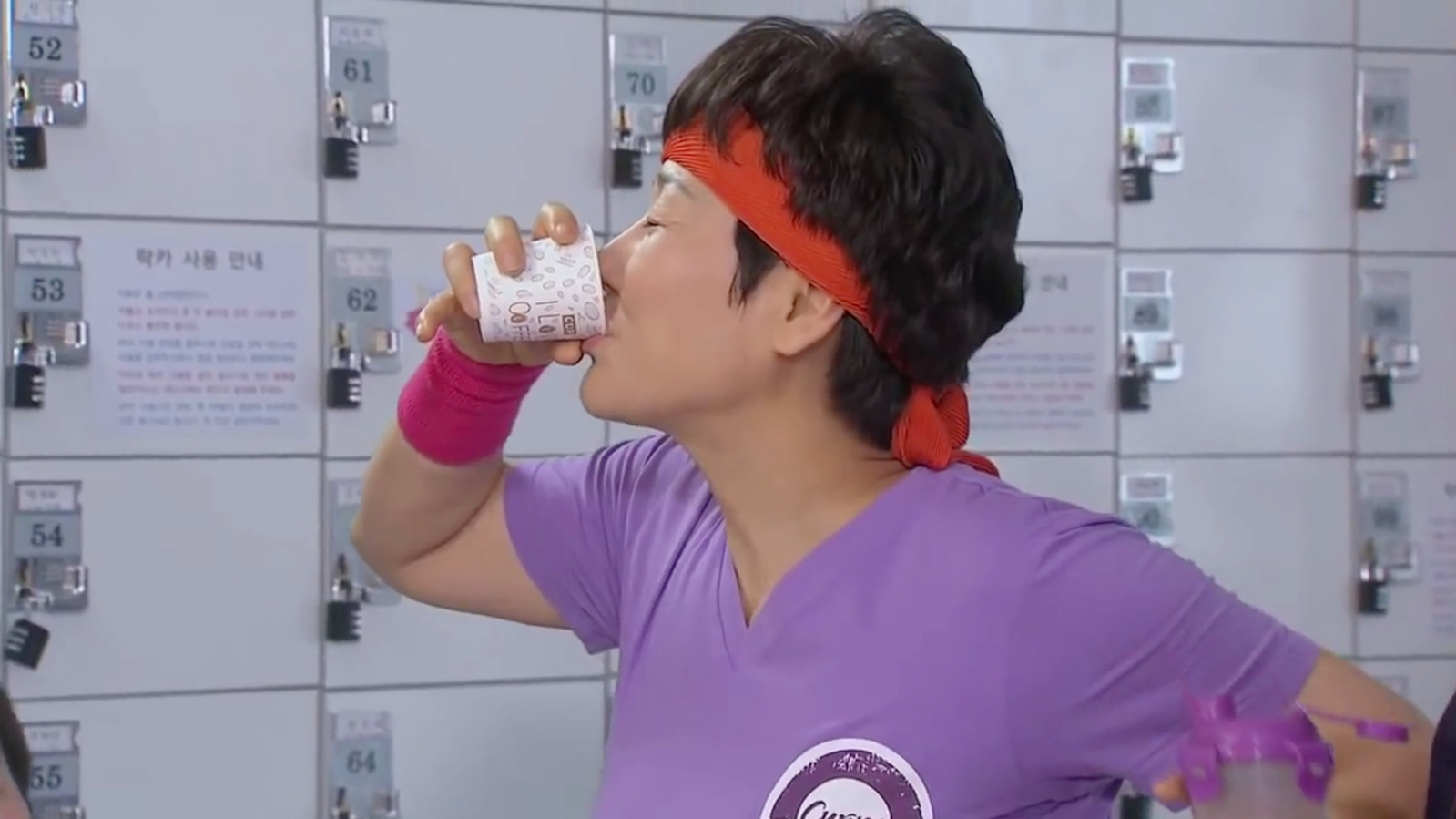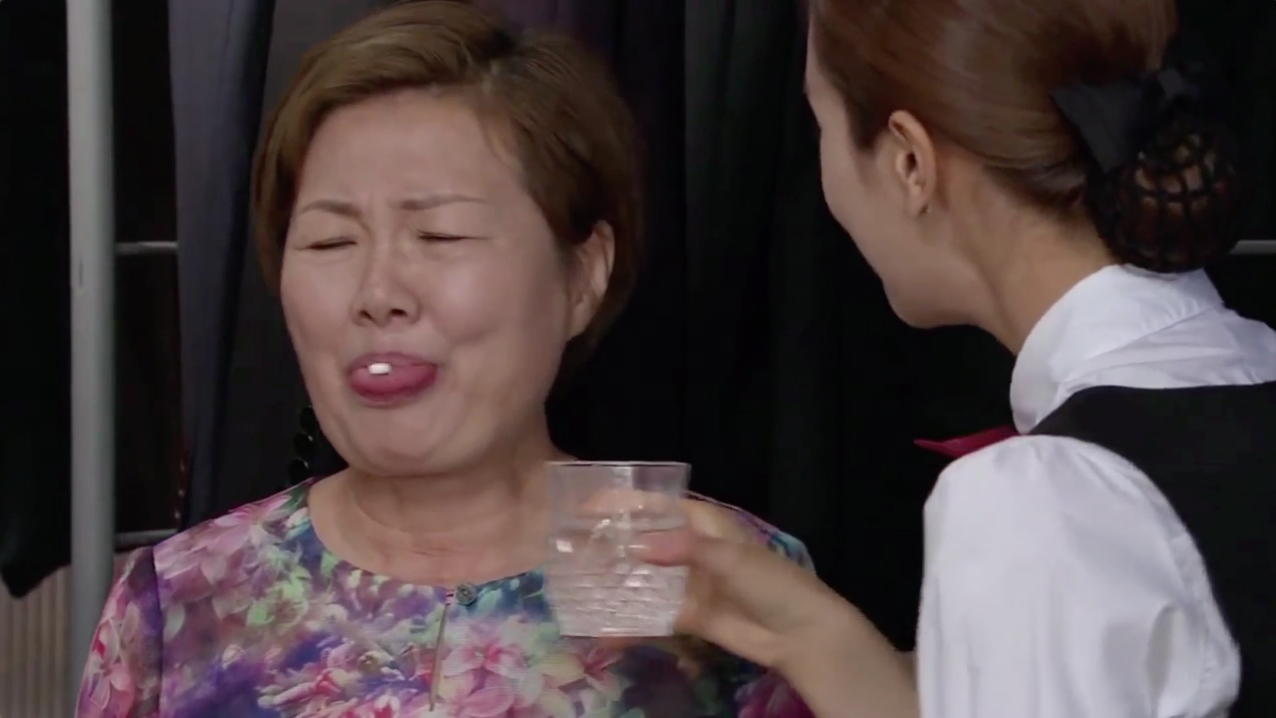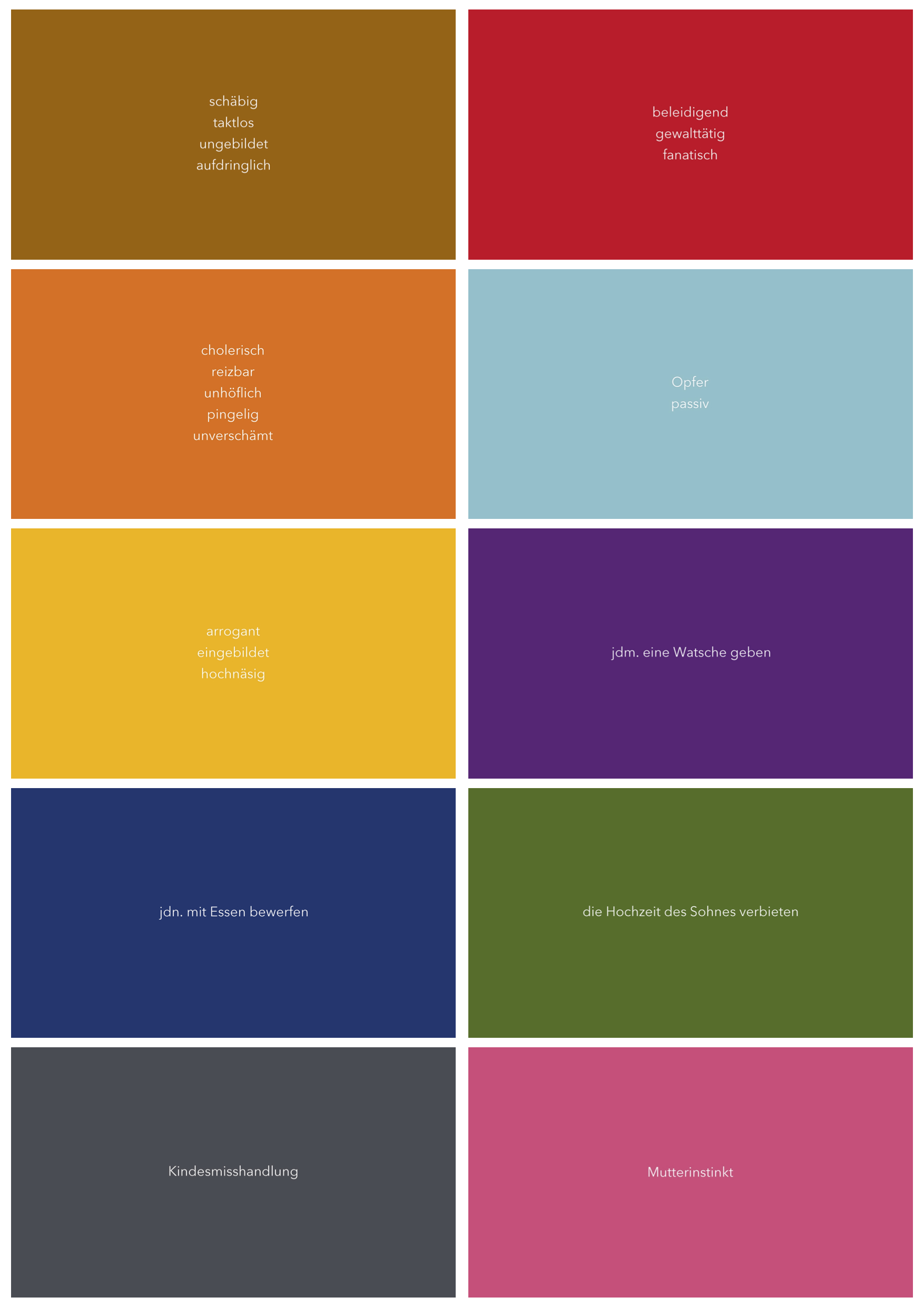Ajumma 2015
10 min, Video clips from South Korean soap operas
10 min, Video clips from South Korean soap operas

The video Ajumma (2015) is about middle-aged women in Korea. When a woman is old or married, she is called “Ajumma”. They are treated almost as a third sex, no longer as women.
These days sexual discrimination is still highly prevalent. Comparing modern sexism to the time of women’s suffrage in the 19th century complicates the idea of discrimination. Discrimination now is not so apparent and therefore to stand against it requires new strategies. In the past, women were denied some basic legal rights that were given to men, and so the structure of discrimination was obvious. Now sexism works in confidential and complicated webs of discrimination. There is, for example, a ‘glass ceiling’. It may appear that all systems are equal, meaning women and minorities have the ability to rise to the highest rungs, but this is not the case. Too many barriers still block women. To struggle against sexism requires an elaborate and complex plan.4
This situation of hidden sexism is well produced and sustained by Korean mass media; the media creates an image of women as obedient, commodifiable objects.
The Korean word “Ajumma” is the informal expression of the word “Ajummeni”, which means ‘aunt’. These days Ajumma refers to any middle-aged or elderly woman.5
Even though its original meaning does not degrade women, it is almost forbidden to call someone by this word in public. In February 2014 an experiment was carried out by Korean journalists about women being called Ajumma on the street. 8 % of the women did not respond to being called in this way, and 21% of the women responded to the journalist in an offensive way.6
Women who were involved in the experiment reported feeling that their sex and their social status were both denied when they were called Ajumma. Moreover they thought that being called Ajumma undervalued all housewives.

In South Korea, women say that they lose their own name when they get old, and all of them instead receive the same name tag of Ajumma.
This new meaning to the word Ajumma was given during the time when Korea had to overcome the economic crisis following the Korean War. The reason for this change in meaning was that society did not need the image of the traditional woman anymore. Instead society needed strong mothers and housewives who did not mind rough work in order to provide a better life for their family.7
There is also a Korean word for a middle-aged man, “Ajessi”. However, Ajessi has more varied images as men have established themselves in the economic mainstream. All women obviously become Ajumma but paradoxically no woman wants to be an Ajumma. The mass media has degraded the meaning of Ajumma, and people now consider this degradation as normal social circumstance.
In Korean society, women are mistreated and categorized by their appearance, age, single or married, with or without children, and educational background, based on being a woman. Women are even conditioned to live in frames of stereotypical, female behavior. Moreover they
try to control themselves in order to avoid behaving like an Ajumma. If women do not stop hindering their performance to conform with the provided stereotypes, such categorization of women will keep continuing. There is no Ajumma; there is only people who want to call women Ajumma.8

1. Cf.: Ueno Chizuko, ONNA GIRAI-NIPPON NO MISOGYNY, p.53
2. Korean Women Hot Line, http://hotline.or.kr/board_statistics/24845?ckattempt=2,
Opend on 14.09.2016
3. Cf.: The Transition of Korean Women’s Education, Jea-In Kim, Ae-Kyoung Yang, Hyeon-Lan Heo and Hyeon-Ok Yu, Published by Korean Women’s Development Institute, 2000
4. Cf.: Prof. Nam-Soon Kang, SisaIN Magazin, http://m.sisain.co.kr, Open on 17.01.2016
5. Cf.: The National Institute of the Korean Language, http://stdweb2.korean.go.kr,
Opened on 17.01.2016
6. Cf.: Jin-Suk Lee, Dong-A ILBO, http://news.donga.com/3/all/20140211/60734193/1,
Opened on 17.01.2016
7. Cf.: Hankook ILBO, http://news.naver.com/main/read.nhn?
mode=LSD&mid=sec&sid1=110&oid=038&aid=0000311777, Opend on 16.01.2016
8. Cf.: Ma-lu Lee, Magazine Allure, http://www.allurekorea.com/2014/09/04, Opend on 16.01.2016
This project was supported by the Academy of Fine Arts Vienna.